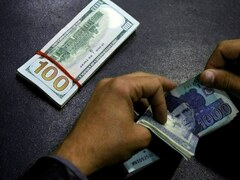The labour of some four million farmers has borne sweet fruit. Eighty percent of all farmers that grow wheat worked undeterred, despite the row over water that had threatened to destroy the crop. As a result the harvest season has brought with it a bumper crop this year.
Estimates of the wheat crop have been floating around. Credible sources assess that some 24 million tons have been produced this year. The logical assumption is that the farmer is going to witness a year of prosperity, which may not be the case in the practical world.
Financial constraints and operational mismanagement have dashed the hopes of farmers. All is not bad however, as record sales of luxury cars and tractors speak volumes of the previous years support price benefit to the farmers. Still, this year, the story may be different.
In an apparent effort to pass on the benefit of a good season to the farmer, support price for wheat was set at Rs950 per 40 kilogram. However, a trader in Karachi told BR Research that market price for the same quantity is hovering around Rs900 in Karachi, Rs800-850 in other parts of Sindh and Rs750 in Punjab.
When market price is lower than the support price, procurement is done at much lower rates and the farmer does not receive the intended benefit. This is because the government doesn procure the entire crop leaving most of the quantity to be picked up by the middlemen.
Meanwhile, the fiscal pressures affecting Pakistans economy have not left commodity financing unchecked. Last year Rs277 billion were disbursed by banks for financing wheat procurement. Slowdown in the economy coupled with inability of government agencies to sell wheat in the domestic market due to thin demand, has resulted in the retirement of only 30 percent of the advances.
Its no surprise then that commercial banks aren rushing to make deals for this years crop. Financing schemes that include issuing TFCs against pensions of government employees are being thought up in the Ministry of Finance.
The central bank has already stepped in to encourage commercial banks to disburse funds for wheat procurement. Some Rs25 billion have been advanced by the banks in recent days to ensure the smooth trade flow of commodity financing.
Media reports suggest that a supply and demand gap in financing of some Rs100 billion may be witnessed in keeping with the procurement target of 7.5 million tons this year.
The decision to export wheat has been deferred by the ECC until harvest estimate is finalized. It is important to note that the average mark-up cost in storing the excess grain is costing the government agencies about Rs2 billion every month.
The misery doesn end there. Despite a healthy outcome of the farmers work, operational hiccups are a cause of concern too.
Wheat harvest is packed into gunny sacks before being transported to procurement centres. Small farmers have been waiting in earnest for the bags, which must also be bought through the same organizations.
Passco, the entity that stores grain for future consumption, is still holding some 60 percent of last years crop. The worn out and aging silos don have the capacity to hold wheat, where it can be kept safe from rains, in the upcoming monsoon season.
If that wasn enough of a problem, contamination cases have been reported this week in at least one procurement centre at Ghotki, where wheat was seen being mixed with soil. Contamination of the staple food can be very costly to the people as well as the government.
BR100
12,154
Increased By
88.7 (0.74%)
BR30
35,868
Increased By
101.3 (0.28%)
KSE100
114,872
Increased By
808.3 (0.71%)
KSE30
35,267
Increased By
233.5 (0.67%)



















Comments
Comments are closed.